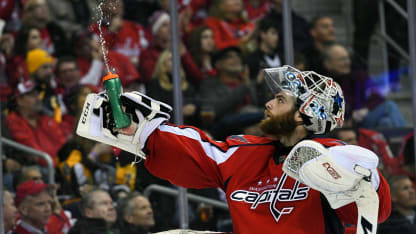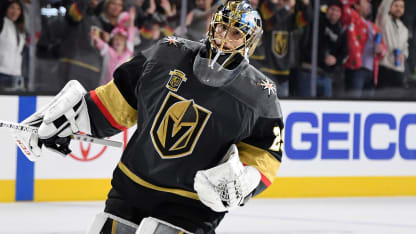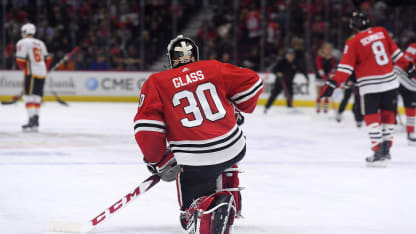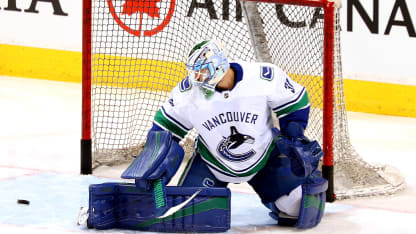Holtby's post-goal routine never changes: He lifts his mask, grabs the water bottle from the back of his net and squirts a stream of water high into the air, picking out one drop and focusing on it as it falls to the ice. What started as a way of refocusing during a junior game with Saskatoon in the Western Hockey League has morphed into a constant in his routine, thanks, in part, to work he has done with sports psychologist John Stevenson.
"Sometimes my vision would get a little shaky or my mental focus was off a little bit, and working with my sports psychologist when I was younger, he told me to find something small and focus on it in between whistles to try and bring your focus back into one point," Holtby said. "I just found something that was moving and small and a drop of water was the way it turned out. I started doing it before I was on camera the whole game (in the NHL), so I didn't even notice how weird it was, but now it's definitely noticed."
Former Calgary Flames goalie Miikka Kiprusoff used to take one drink of water, spit it out, then spray his face with the water bottle. It was the first step of what goalie coach Marcoux, now a contributor to the Coaches Room feature on NHL.com, calls the five Rs of resetting after a goal: release, relax, review, regroup and refocus.
Not every goaltender has a post-goal routine as strict, or as easy to spot, as those of Holtby or Kiprusoff. Some, like Vegas Golden Knights goalie Marc-Andre Fleury, simply skate into the corner. Others clean their crease, as if wiping away the goal. Some don't do anything specific. But they all know how important it is to move on quickly.







